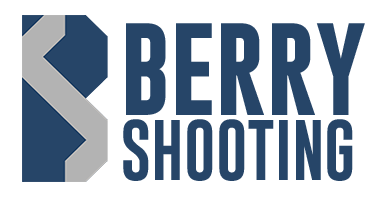Mastery Books
These are books that aren’t explicitly about shooting, but about the endless process of improving and trying to get a little bit better every day. Note that all the Amazon links are this page are affiliate links. If you buy something through them, I get a little commission.
Peak by Anders Ericsson and Robert Pool: If you only read one book on this list, read Mastery. But if you read a second one, read this one. It talks about what Ericsson has learned in 30 years of research on expertise, including the “golden standard” of good practice, how to overcome plateaus, and why the 10,000 Hour “Rule” isn’t what you think. Highly recommended.

Mastery by George Leonard is a very compact book that is package full of lessons learned over decades of practicing Aikido. This is a book about understanding people and yourself, dealing with the plateaus and valleys, and staying motivated through it all because walking the path of mastery is worthwhile, even if you never get to the end. The wisdom contained in the book takes years to appreciate. I re-read the book at least once a year, and every time, I walk away with a new look on my practice and matches.

The Art of Learning by Josh Waitzkin is an entertaining story of his early life as a world-class junior chess player and later competing in Tai Chi Push Hands. The book includes a lot of his ruminations and analysis of mental problems he encountered and how he dealt with them. Well-written and likely to give you some ideas. Also includes some unfortunate stories of corruption and unfairness in other sports that makes any trouble we have in USPSA seem tame by comparison.

The Talent Code by Daniel Coyle is a fun narrative telling of the stories of a number of hotbeds of talent across the world and how they tend to be hotbeds of hard work more than any kind of natural ability. The author is a reporter and not a practitioner himself, so the stories are mostly secondhand and the coverage of the “amazing discovery” of myelin can be a little breathless at times. Despite that, it’s an enjoyable read that might spark some ideas and give you some inspiration that skill isn’t born, it’s grown.
Shooting Books
These are the books that talk about nuts and bolts of gear, technique, effective dry fire, match management, and everything else you need to be a skullcrusher in USPSA.

Skills and Drills by Ben Stoeger: Of Ben’s three books (the other two being Dry Fire and Practical Pistol), this is the one that I personally got the most out of. It’s very easy to waste time at the range setting up a drill that isn’t helpful, and this book is jammed full of ideas of how to make your live fire as productive as possible. Most of the drills can be replicated in dry fire too, if you’re in to that kind of thing.

Principles of Performance by Steve Anderson: Steve has three books as well, and they are all worth having, but I think his second book doesn’t get the attention it deserves. It’s a bit of a jaded book full of hard lessons learned on the range. The section on common mistakes you see at matches has proven amazingly timeless.

Practical Shooting: Beyond Fundamentals by Brian Enos: The original bible of practical shooting, the book everyone owns and nobody reads. It’s a dense read that is hard to wrap your head around if you don’t have a strong foundation in the sport, but it says right on the label it’s not fundamentals. The zen descriptions are a little hard to follow, but if you plow through it, you may find that this book, almost three decades old, still has some things to teach you about the small moments and small feelings when shooting.

